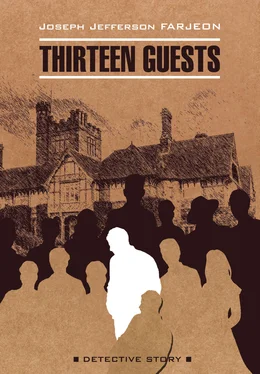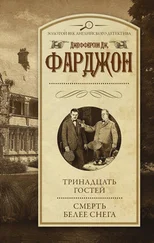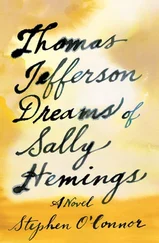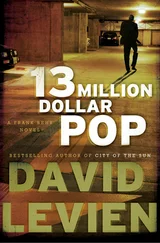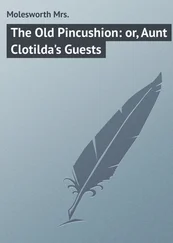“What does Bultin say?” people started asking.
An actress in the Savoy grill-room—yes, Bultin now went there—left her table to tell him of a pearl necklace she had lost. Two or three weeks earlier he would have travelled five miles to the actress. Now she had travelled five yards to him. Twice the alleged value of the necklace was given exclusively in his column next day, with an account of how the actress had left her pâté de fois gras to tell him of the loss. It had really been tomato soup, and the necklace had never been lost at all; but such minor matters were unimportant. The important matter was that the concluding sentence of Bultin’s paragraph was nearly, but not quite, libellous.
Bultin’s column grew to two. Then to a full page. In a short while the fifty pounds was repaid. Bultin had killed himself, and never had a moment’s financial anxiety afterwards. His carcass grew rich....
And, just as the actress in the Savoy grill-room had angled for his publicity, so Zena Wilding posed for him now on Flensham platform, striving to create a paragraph out of her luggage, her Paris hat, and her teeth.
“Oh, dear! Am I keeping everybody waiting?” she gushed, as Mr. and Mrs. Chater moved towards the car.
“Yes,” answered Bultin. (His column should mention later how he had agreed with her.)
Then Zena forgot all about her luggage and her hat and her teeth. She also forgot Bultin. The man who had waited for hours in the Black Stag was standing before her.
She gave a gasp. For an instant she looked almost old. She stared at the man without moving, but Bultin gained an impression that she was arching her back like a cat. Then she turned swiftly, and dived towards the car. Mrs. Chater was just getting in.
“Is anything the matter?” inquired Mrs. Chater, apathetically.
“No, nothing!” cried Zena. “Which corner would you like?”
Mr. Chater turned, and saw the man. He also stared. But his manner was considerably more composed than Zena’s. His expression of surprise changed to a smile, and he walked up to the man. The man had an unlit cigarette in his mouth.
“Want a light?” inquired Mr. Chater.
The man looked livid. Mr. Chater struck a match. The man blew it out.
“See you presently,” he muttered.
“I wouldn’t,” answered Mr. Chater quietly.
Two seconds later, Mr. Chater was entering the car.
About to follow, Bultin changed his mind and strolled casually up to the man.
“You might as well,” he remarked, taking out his lighter. “You’re supposed to burn one end, you know.”
The man switched round violently. Ten years previously Bultin would have dreamt of the expression in the man’s eyes. Now he merely found it undoubtedly interesting.
“I am Lionel Bultin,” he said. “I am spending the week-end at Bragley Court. I shall be there till Monday morning. I pay for material—provided, of course, that I use it.”
For the second time that evening, the man escaped a brainstorm by the breadth of a hair. The first time it had nearly been caused by a penn’orth of mechanical music.
“Bragley Court,” he repeated, suddenly calm. “You’re going there, too, eh?” He bent forward and accepted the light. As he withdrew his head he added, “You’ll get something to write about.”
Chapter VI. Spottings of a Leopard
The drive to Bragley Court was stiff and uncomfortable. Bultin never did anything to put people at their ease, and Zena Wilding’s forced vivacity was as unhelpful as Bultin’s silence. The one subject that most vitally interested the majority of the party was studiously avoided.
“Don’t you think there’s always a sort of a thrill, going to a new country house?” exclaimed Zena, trying nervously to be brilliant. “Something like the curtain going up on a play?”
“Yes,” answered Mrs. Chater dutifully.
It was not encouraging, but Zena prattled on:
“And then the guests—they’re like the characters—and you wonder what’s going to happen. Of course, nothing particular ever really does happen. Just as well! Suppose it did—a fire, or a burglary, or a murder! No, thank you, we’ll leave that to the dramatists!”
She glanced at Bultin. She was speaking partly for his benefit, though partly also to drive her mind from the disturbing moment just before she had entered the car. If she made her conversation scintillating, Bultin might report it.
But Bultin was gazing out of the window, inventing headlines, although his ear did not miss a word Zena said, and it was Mr. Chater this time who broke the silence with a murmured:
“What? Yes, quite.”
Mr. Chater was able to talk fluently on occasions, but this was not one of the occasions. He, also, was recalling the moment just before he had entered the car. Unlike Zena, however, he was not trying to forget it. He was dwelling on it, probing its meaning.
The actress made one more effort.
“I suppose I can’t help seeing drama in everything,” she said, forgetting that her drama rarely rose above the level of musical comedy. “Even when I was on the Riviera—do you know the Riviera?—it was there I met Lord Aveling—yes, even on my holiday I was always inventing plots about everything and everybody. Your mind just goes on working, you know, without your knowing it.” She glanced again at Bultin. He was still staring out of the window. It was very disappointing. Well, she must give him some definite news—perhaps that would wake him up. “Yes, but one wants to get back to work. Of course, I enjoyed my holiday immensely—after my illness—but it was far too long. Do you know, it seems years and years since I put on any make-up.” Bultin did make a mental note of that phrase. “But—well, I don’t believe it will be very long now. As a matter of fact—in strict confidence—I’ve got the play in my case at this moment!… Only perhaps you’d better not mention it just yet, Mr. Bultin?”
“I promise I won’t,” he answered.
The man was just a beast! She hoped earnestly that he would break his promise.
After that she gave up, and the journey continued in silence.
They reached their destination as Lord Aveling was greeting another guest who had just preceded them, and who had made the trip from London by car. “Earnshaw,” Bultin identified. He also noticed that Lord Aveling was welcoming him effusively.
“Delighted you were able to get away, Sir James,” said Aveling. “You’re staying till Monday, of course?”
“Unless I’m called back,” replied the Liberal member, his large rich voice filling the hall. He gazed about him as he spoke, leisurely and unflurriedly. He had all the solid assurance of a well-groomed, well-fed man. “Land question, you know.”
“It’s the eternal question,” smiled Aveling. “I expect we’ll talk about it. State or private ownership. Communism or—common sense, eh? No middle course these days.”
The Liberal member looked at his host sharply. He, too, was doubting the wisdom of the middle course. Moderation was in a disconcerting minority at the moment. But it was not this reflection that had arrested him. It was “Communism or Common Sense.” He revolved the words in his mind. A slogan there, somewhere. Communism or Common Sense. Communism or Common Sensism. House of Commonism....
The Honourable Anne appeared on the stairs. Slogans vanished as he strode forward to meet her. Meanwhile Lord Aveling’s polished voice droned on:
“Ah, Miss Wilding! How are you? I hope the journey was not tiring?” He took the actress’s hand and held it for an instant. “We have something to chat about, have we not? Ah, Bultin—how is the world treating you? Or perhaps we should say, how are you treating the world? Have you brought your large note-book? Be careful of this man, Miss Wilding! He can make or ruin one in a single paragraph. We all try to keep on the right side of Mr. Bultin.”
Читать дальше
